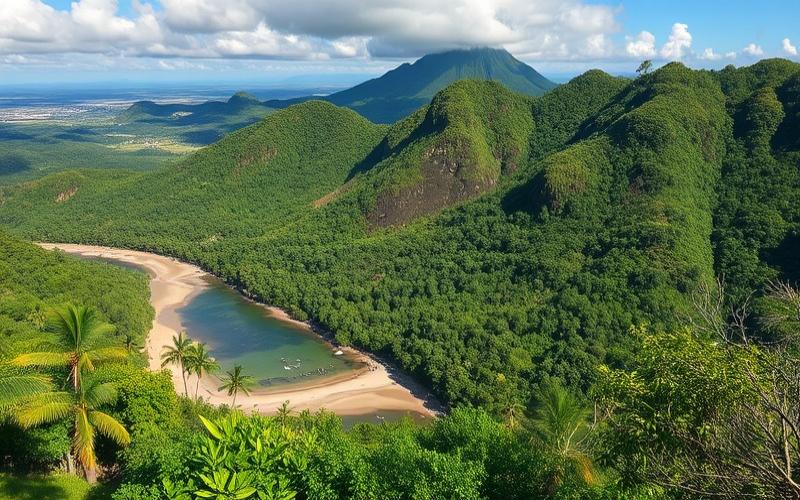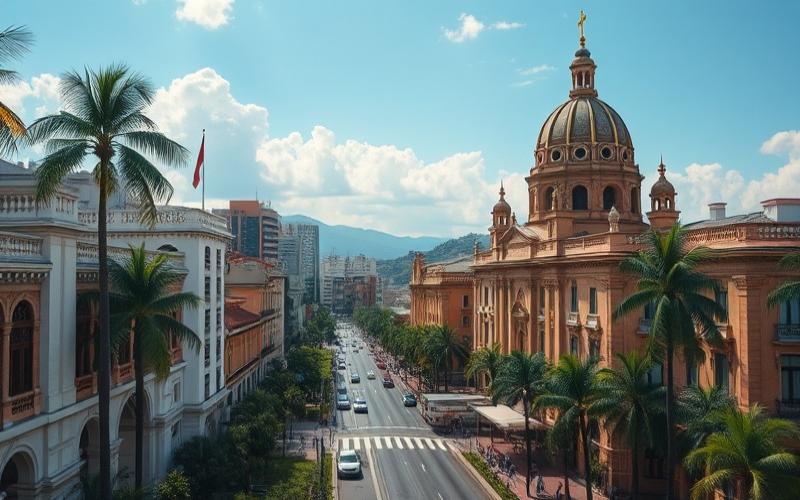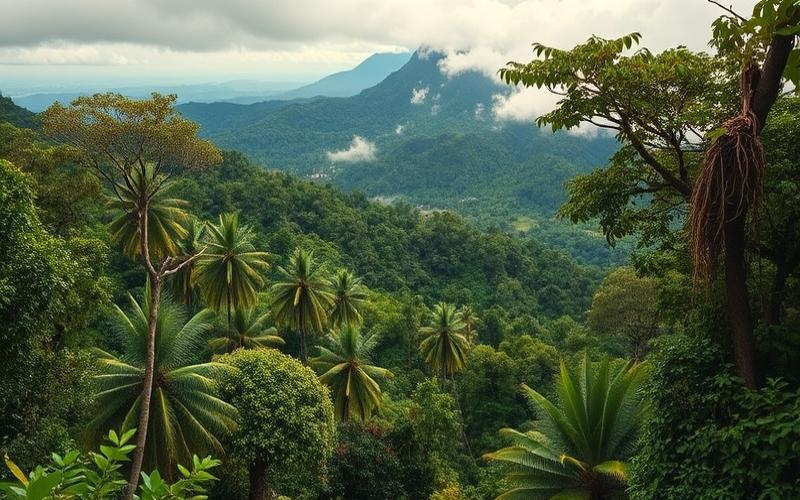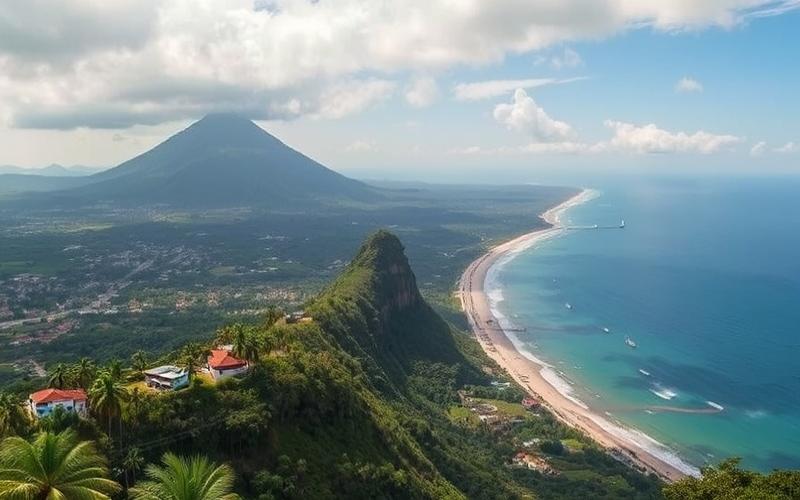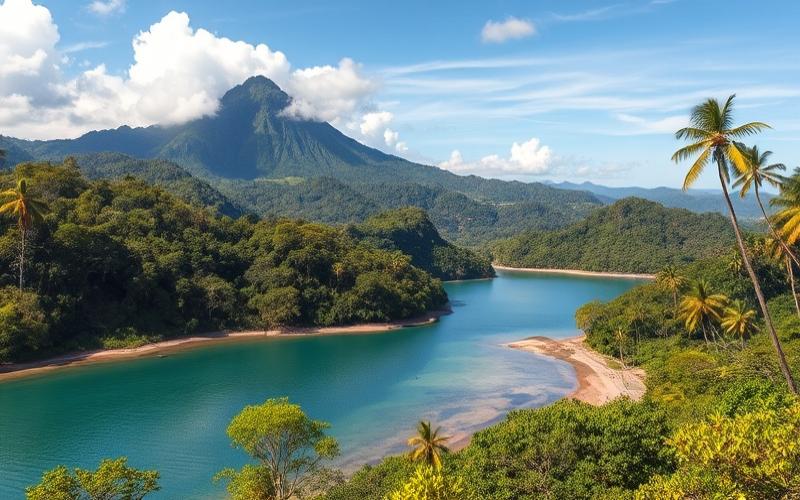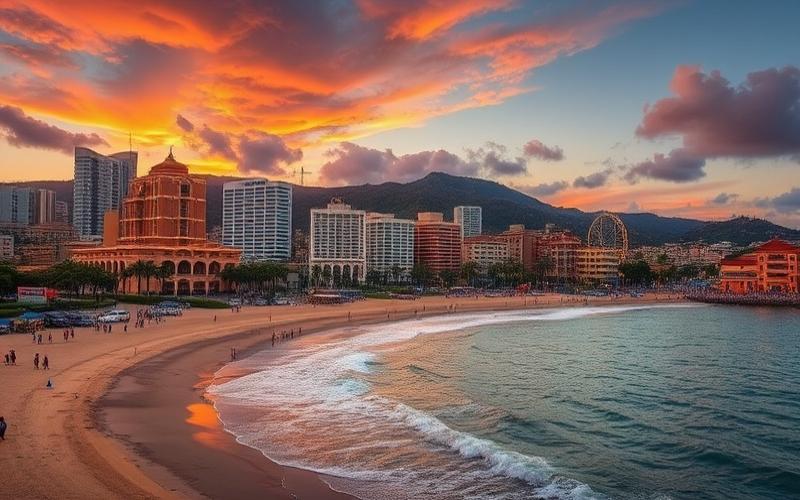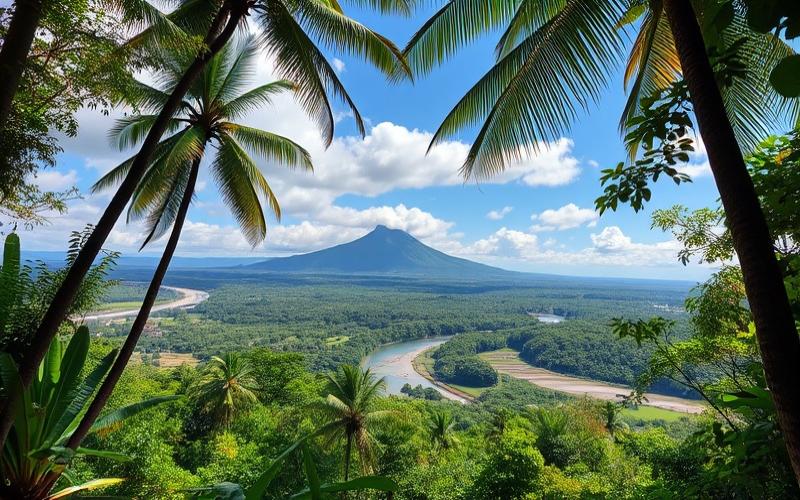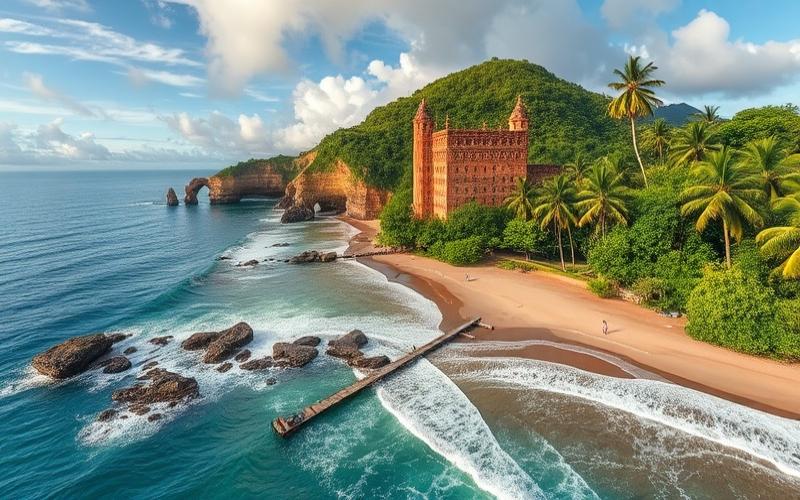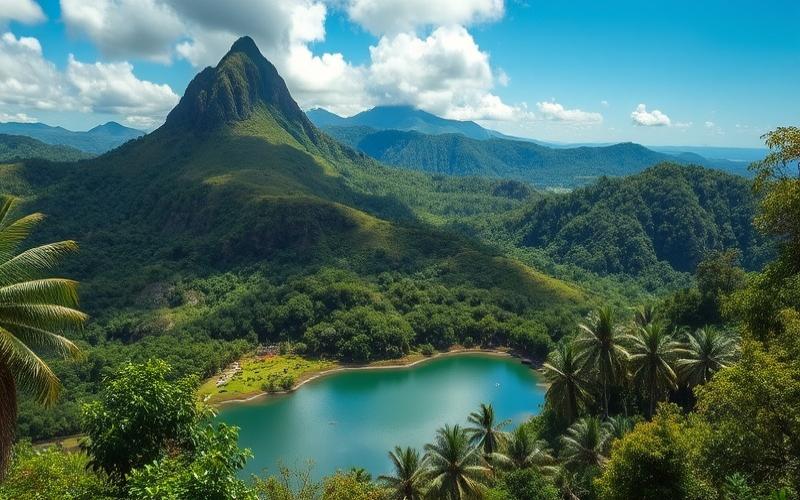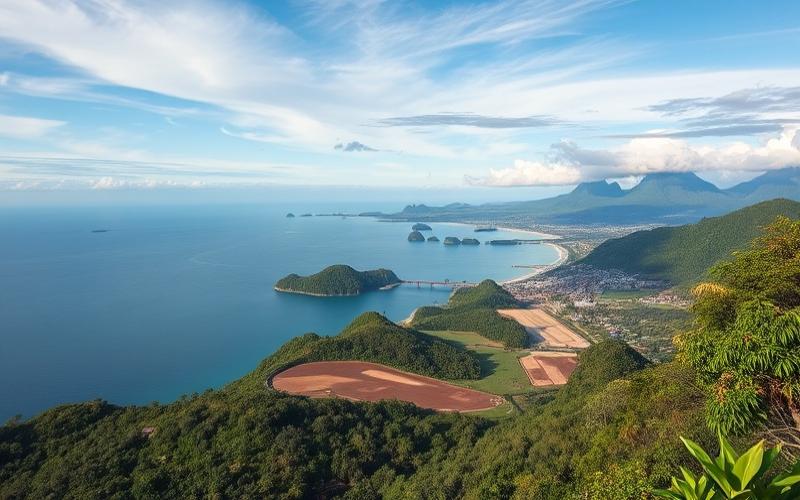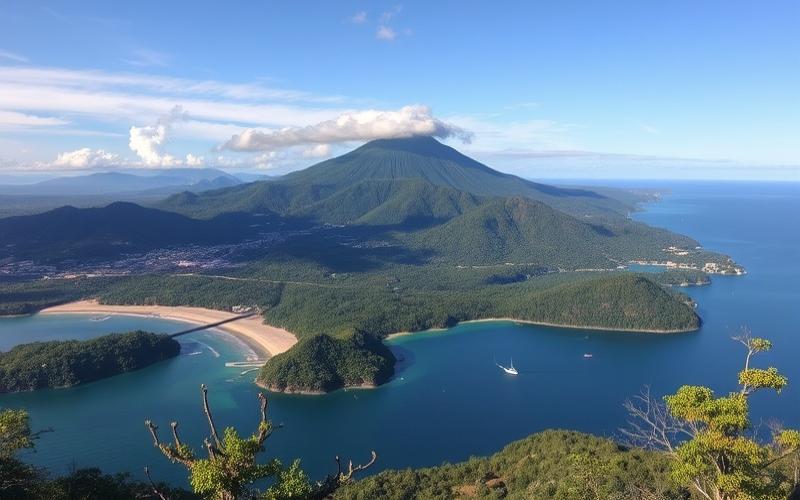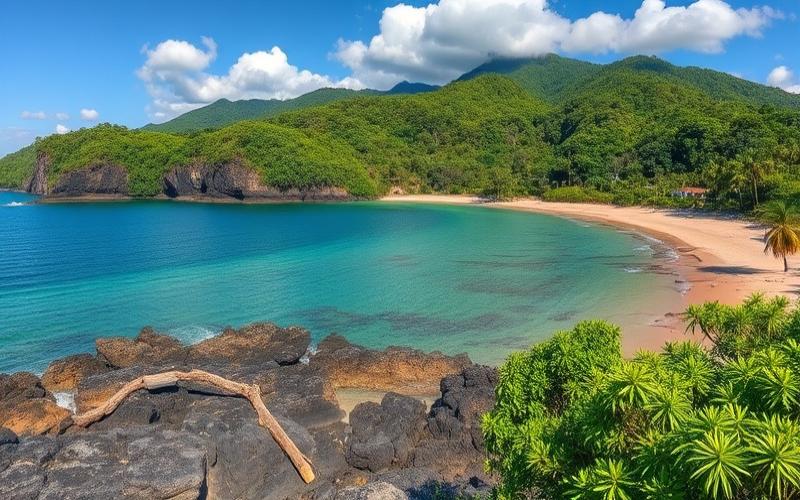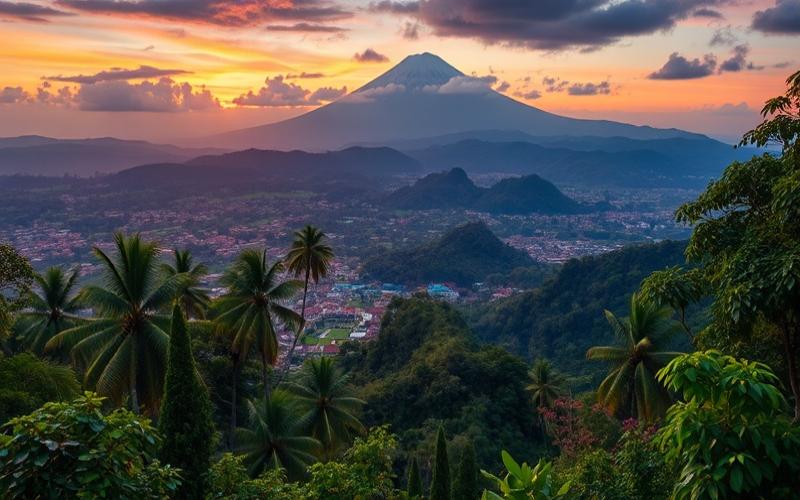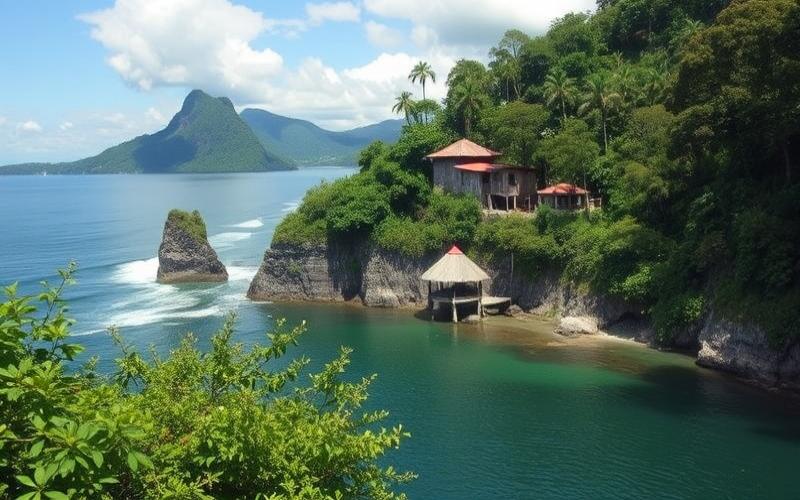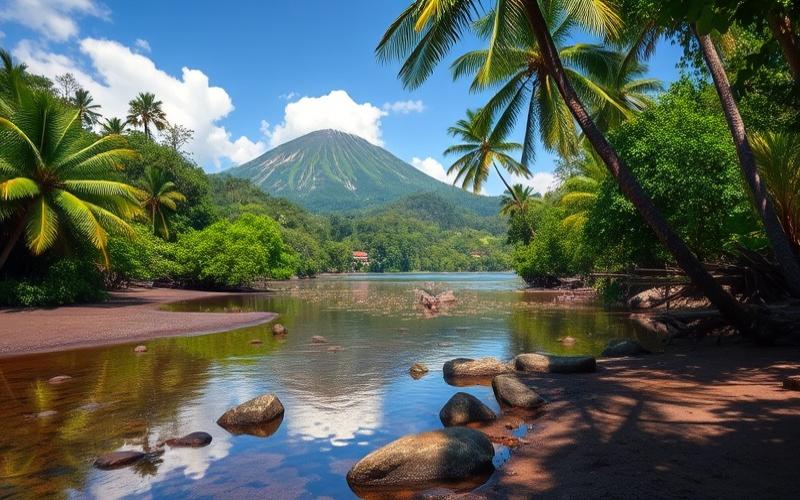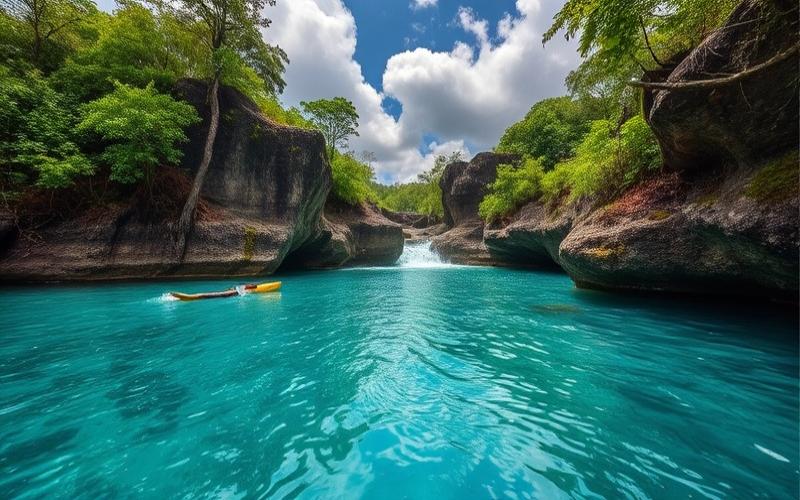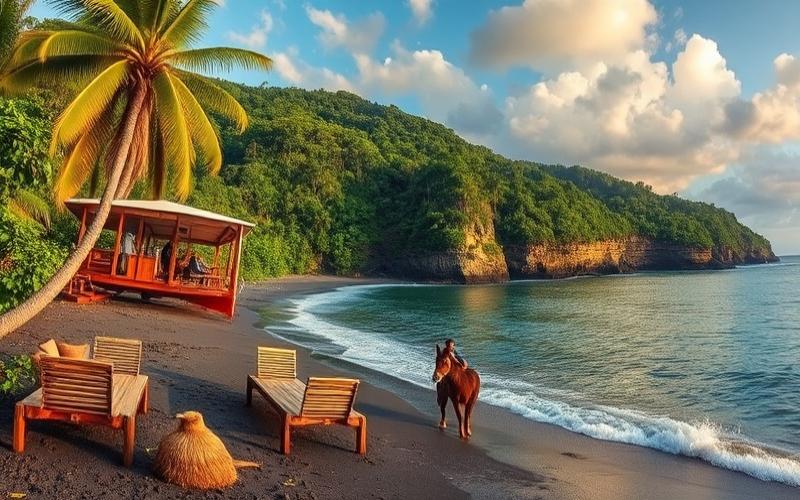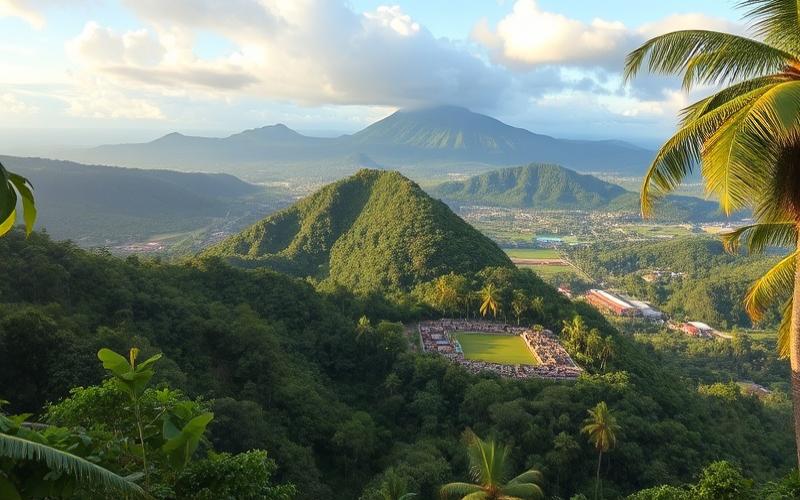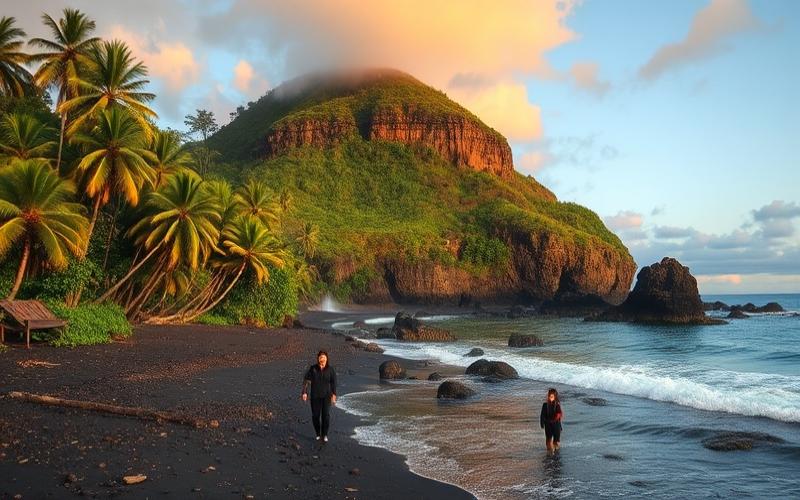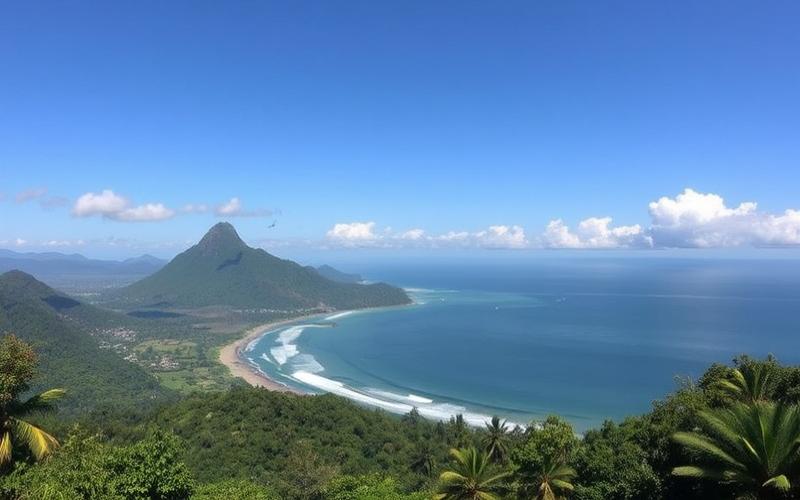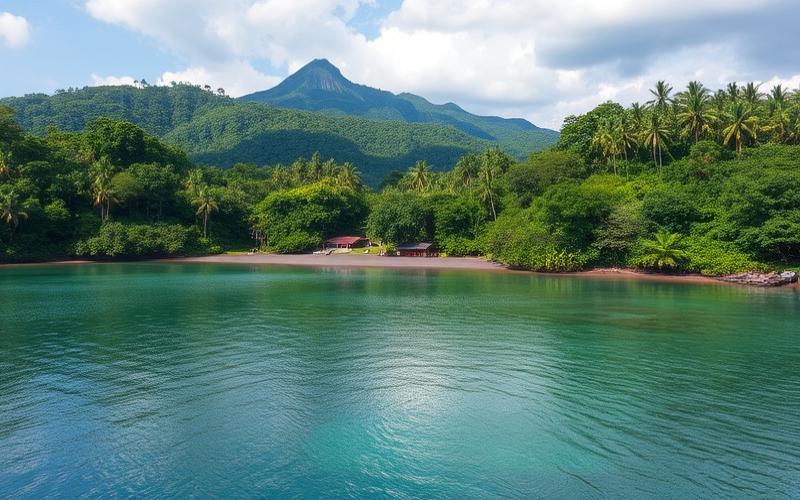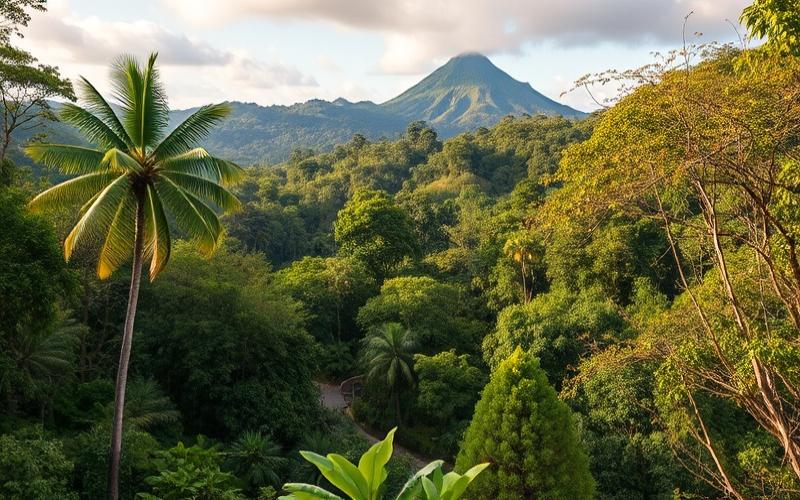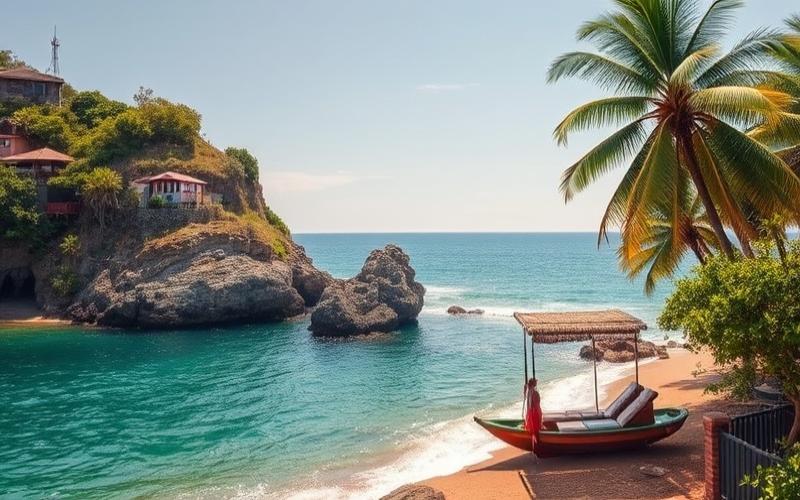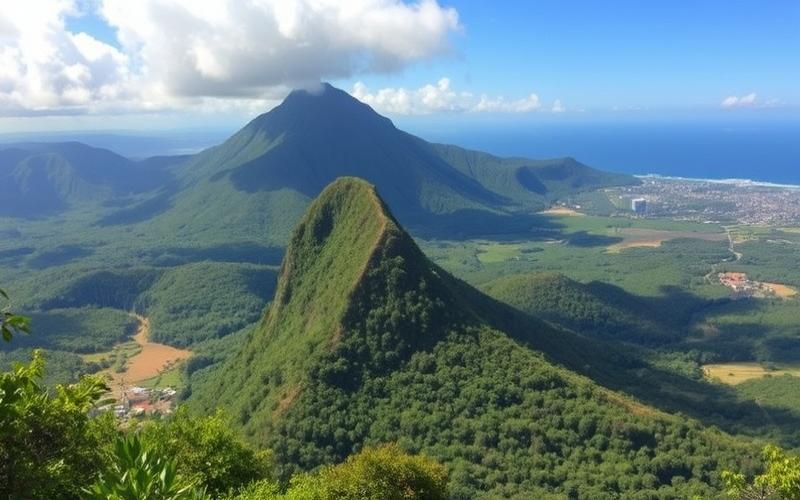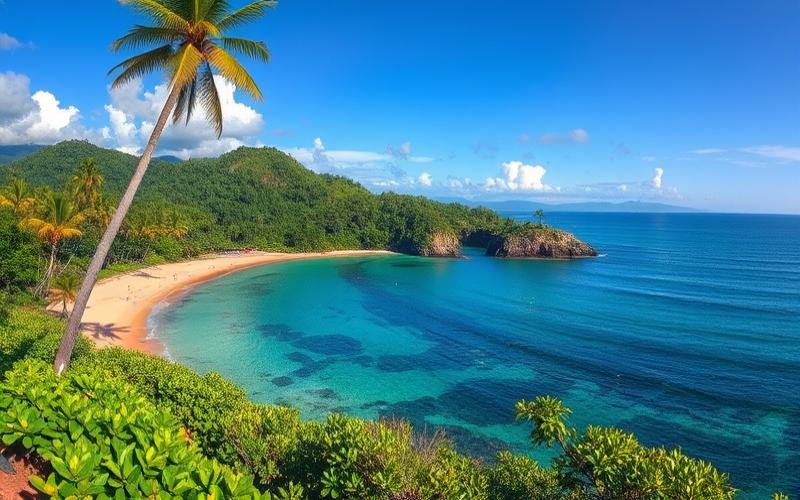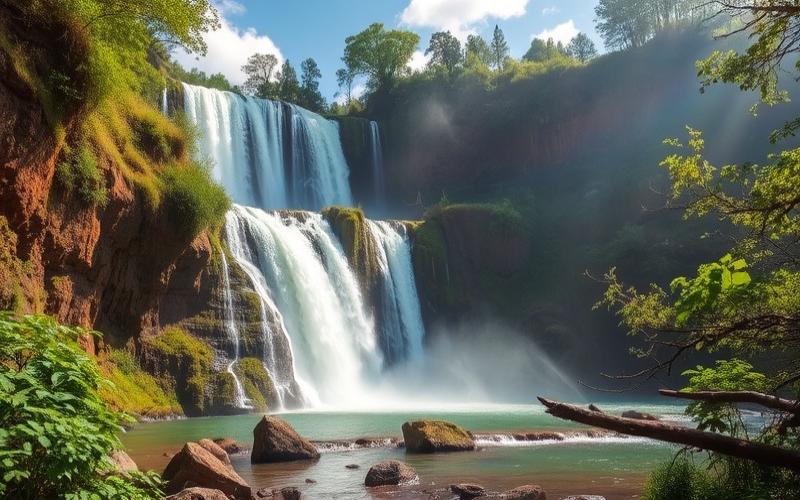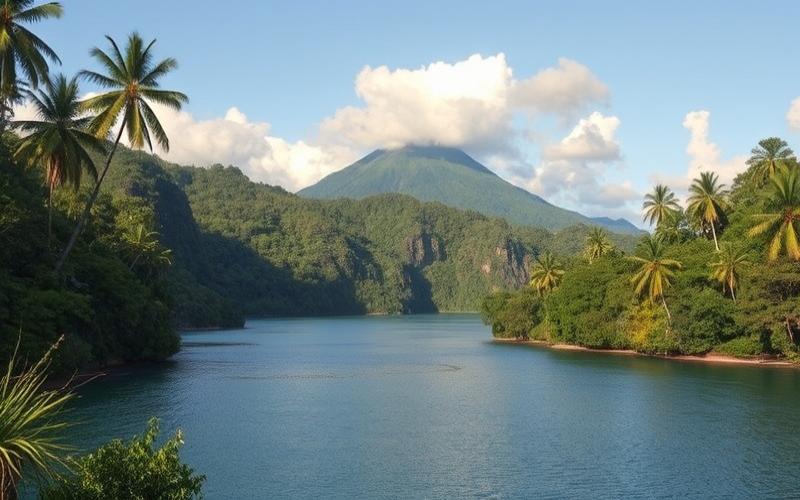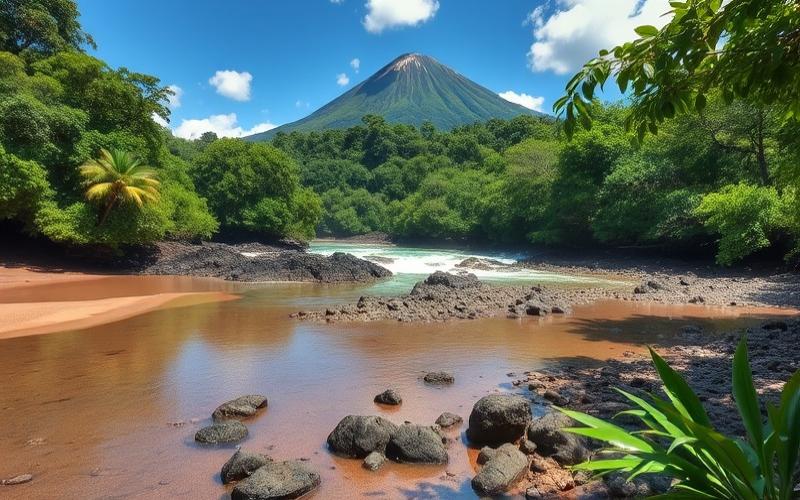
 Published on and written by Cyril Jarnias
Published on and written by Cyril Jarnias
Costa Rica, A Sought-After Real Estate Destination
Costa Rica is an expanding destination, attracting numerous international buyers seeking properties in this tropical paradise. However, to ensure a wise and secure investment in this picturesque country, it is essential to know the must-have certifications.
Good to Know:
Indeed, acquiring a property without verifying the required certifications can lead to unexpected legal and financial complications.
Key Certifications for a Secure Purchase
This article explores the key certifications to require during a real estate purchase, allowing you to navigate the acquisition process in Costa Rica with complete peace of mind. Aligning due diligence with accurate information will help make your purchase project a safe and smooth success.
Essential Legal Documents for a Secure Purchase in Costa Rica
List of Essential Legal Documents When Buying a Property in Costa Rica
- Escritura Publica (Property Title): Authentic deed drafted and signed before a Costa Rican public notary. This document is mandatory to validate the property transfer and allows its registration with the National Registry.
- Informe Registral (Property Registration Report): Official extract from the National Property Registry attesting to the legal status of the property, existing encumbrances, potential mortgages, or any restrictions.
- Cadastral Survey (Plano Catastrado): Technical document that precisely identifies the location, boundaries, and official area of the plot. It must be up-to-date and match the registered data.
Other common documents:
- Letter of Intent to Purchase
- Purchase and Sale Agreement (Option to Purchase and Sale Agreement)
- Escrow Agreement to secure the deposit
| Document | Main Role | Issued/By |
|---|---|---|
| Escritura Publica | Legal transfer of title, authorizes registration | Public Notary |
| Informe Registral | Verifies legal status of property and absence of disputes | National Registry |
| Cadastral Survey | Guarantees physical/legal compliance of the land | Cadastral Engineer |
Verifying Document Authenticity
- The Escritura Publica must be registered with the National Registry; verify that the deed bears an official registration number and the notarial stamp.
- Request an updated Informe Registral, obtained directly from the Registro Nacional or through your local attorney; ensure there are no mortgages or ongoing disputes on the property.
- Compare the provided cadastral survey with the public information available on the official cadastral website; check that the physical measurements match those indicated in all other documents.
Practical Tip: Always request these extracts directly or have them obtained by your attorney to avoid any risk related to falsifications.
Critical Importance of Consulting a Local Specialized Attorney
A specialized attorney in Costa Rican real estate law:
- Confirms the formal validity of notarial deeds
- Analyzes all potential encumbrances on the property
- Verifies compliance between cadastre, titles, and actual use
It is strongly advised not to proceed with a transaction without this personalized advice.
Engaging a local professional not only guarantees legal security but also a perfect understanding of Costa Rican legal specifics.
- Carefully study each document before signing; require their prior delivery for thorough examination.
- Always favor an acquisition via an escrow account managed by a recognized company to protect your funds until official completion.
- Ensure that any transaction is conducted before a licensed public notary.
Common Mistakes to Avoid When Buying Real Estate in Costa Rica
- Neglecting to obtain or verify official titles directly with the national registry; accepting only uncertified copies can lead to fraud or double sale.
- Ignoring specific legal restrictions such as those concerning maritime zones (“zona marítimo-terrestre”), where no foreigner can directly acquire certain types of properties without strictly complying with local regulations.
- Not checking if all property taxes are paid before purchase: tax debts can transfer with the purchased property!
Summary list:
- Accepting without prior verification all documents provided by the seller alone
- Omitting complete analysis by an expert attorney in local real estate law
- Neglecting updated cadastral surveys
- Not using a licensed escrow service to secure funds
Documentary rigor combined with professional support remains essential to guarantee any secure purchase in Costa Rica.
Good to Know:
When purchasing a property in Costa Rica, it is essential to obtain and carefully verify several legal documents for a secure purchase, including the property title (Escritura Publica), the property registration report (Informe Registral), and the cadastral survey. To ensure their authenticity, it is crucial to use a local specialized attorney who can confirm the compliance of these documents and help navigate the complexities of the country’s property laws. A common practice is to require a clear title and ensure that properties are free of any mortgage or dispute. Additionally, researching the area and consulting the national registry online can reveal other relevant details. Mistakes to avoid include underestimating hidden costs or ignoring restrictions related to zoning and the environment, which can pose future legal risks.
Importance of the Zoning Certificate in Costa Rica
Obtaining a zoning certificate (or land use certificate, “uso de suelo”) is a crucial step to secure any real estate acquisition in Costa Rica. This official document, issued by the competent municipality, certifies the compliance of the land or property with local zoning regulations and current zoning plans.
Why is the Zoning Certificate Essential?
- Compliance Verification: It specifies the permitted uses for the property (residential, commercial, industrial, agricultural…), according to the municipality’s regulatory plan.
- Guarantee of No Hidden Restrictions: The certificate identifies any potential limitations, easements, or environmental restrictions that could prevent or limit the intended use of the property.
- Protection Against Bad Surprises: It prevents the buyer from ending up with non-buildable land, subject to prohibitions, or incompatible with the desired project.
Process for Obtaining the Zoning Certificate
- Application Submission: The request is made to the zoning department of the municipality in the canton where the property is located. The form must be completed in Spanish.
- Documents to Provide: Generally, a copy of the cadastral plan (“plano catastrado”) and a motivation letter specifying the intended use.
- Timeframes: Obtaining it generally takes from a few days to several weeks, depending on the municipality and the complexity of the case.
- Competent Authority: The local municipality, which relies on its regulatory plan or, failing that, on national regulations issued by the Instituto Nacional de Vivienda y Urbanismo (INVU).
Risks Incurred in Case of Negligence
| Potential Risk | Possible Consequence | Concrete Example |
|---|---|---|
| Non-buildable Land | Inability to obtain a building permit | Purchase of land classified as green or protected zone |
| Land Use Incompatible with Project | Refusal of municipal authorization | Land intended for agricultural use, impossible to build a house on it |
| Easements or Environmental Restrictions | Loss of value or inability to use the land | Presence of a river protection zone prohibiting any construction |
| Fines or Demolition Obligations | Financial penalties and material losses | Construction carried out without compliance, requiring destruction |
Advantages of the Process
- Legal and financial security of the investment
- Guarantee of the feasibility of the real estate project
- Prevention of future disputes with the municipality or neighbors
Without a zoning certificate, the buyer is exposed to significant losses and the impossibility of realizing their real estate project in Costa Rica. This document must therefore be considered an unavoidable prerequisite for any acquisition.
Good to Know:
The zoning certificate is crucial for a secure real estate acquisition in Costa Rica, as it guarantees that the desired property complies with local zoning regulations and zoning plans, while verifying the absence of restrictions harmful to its future use. This document, issued by local municipalities, allows for a legal understanding of the site’s status to avoid problems such as unauthorized construction or the prohibition of specific developments. The obtaining process generally takes a few weeks and involves submitting a formal request to the competent municipal authorities. Buyers neglecting this step risk discovering later the impossibility of using the property as intended, for example, the prohibition of operating a house as a tourist rental in a residential area. Thus, requesting a zoning certificate protects against bad surprises and ensures a hassle-free acquisition.
Procedures for Verifying the Property Title
Essential Documents for Verifying a Property Title in Costa Rica:
- Escritura Pública: Authentic deed signed before a Costa Rican public notary, containing the transaction details and the identity of the parties.
- Registration with the Registro Nacional: The transfer and ownership must be registered with the Registro Nacional (Public Registry) to be enforceable against third parties. The registration document includes the property number (Folio Real or número de Finca), the property description, the list of owners, and any existing encumbrance or annotation.
Importance of Consulting a Specialized Real Estate Attorney:
- An expert attorney analyzes the validity of the title, verifies the compliance of the deeds, and detects potential hidden defects, encumbrances, mortgages, or ongoing disputes.
- They ensure the authenticity of the documents and the regularity of the chain of title, thereby guaranteeing the legal security of the transaction.
Research Process at the Registro Nacional:
- Access the Registro Nacional website (RNP Digital, only in Spanish).
- Search by property number (Folio Real/número de Finca), owner’s name, or identification number.
- Verification of the following information:
- Registered owner(s)
- Property description
- Encumbrances, mortgages, easements, or ongoing disputes
- Specific annotations or usage restrictions
Table: Key Information to Verify at the Registro Nacional
| Element | Description |
|---|---|
| Owner(s) | Name(s) of the legal holders of the property |
| Encumbrances/Mortgages | Presence of debts, guarantees, or seizures |
| Disputes/Annotations | Legal proceedings, oppositions, restrictions |
| Property Description | Area, location, permitted use |
| Transaction History | Traceability of previous transfers |
Role of Notaries:
- The Costa Rican public notary drafts the authentic deed (Escritura Pública), verifies the identity of the parties, legal capacity, and the validity of the documents.
- They are responsible for registering the transaction with the Registro Nacional, incurring civil and criminal liability in case of error or fraud.
- Unlike in other countries, the notary has a quasi-judicial role in securing the real estate transaction.
Practical Tips to Identify Warning Signs of Problems:
- Inconsistencies between the property description in the deed and at the Registro Nacional.
- Presence of unreported encumbrances (mortgages, seizures).
- Multiple changes of ownership over a short period.
- Existence of annotations or unresolved disputes.
- Refusal or reluctance of the seller to provide original documents or proceed with official verification.
- Absence of registration of the latest transaction with the Registro Nacional.
Steps in Case of Discovered Anomalies or Disputes:
- Immediate suspension of the purchase process.
- Thorough consultation with a specialized attorney to analyze the situation and determine the severity of the anomaly.
- Possibility of negotiation with the seller for amicable resolution or regularization.
- If the dispute persists, initiation of legal proceedings to assert rights or obtain compensation.
- Avoid any payment or deposit until the situation is clarified.
Comparison with Other Countries in the Region:
| Costa Rica | Panama | Nicaragua |
|---|---|---|
| Mandatory registration with Registro Nacional (centralized) | Similar Public Registry system, but procedures sometimes faster | Regional systems, sometimes less centralized and digitized |
| Very extensive and formal role of the public notary | Notary also essential, but sometimes less thorough control | Less central role of the notary, frequent intervention of attorneys |
| Online verification possible (Spanish) | Online verification, multilingual interface | More difficult access to registries for foreigners |
| Strong legal security for registered titles | Good security, but caution in coastal areas | Higher risk of conflicting or unregistered titles |
Good to Know:
To secure the purchase of a property in Costa Rica, it is crucial to properly verify the property title by examining the Escritura Pública and the registration with the Registro Nacional. Engaging a specialized real estate attorney is essential to analyze the validity of the title and conduct a thorough search at the Registro Nacional to ensure there are no encumbrances, mortgages, or disputes burdening the property. Notaries play a key role in authenticating and registering transactions, which strengthens the security of the acquisition. Be vigilant for warning signs, such as unexplained recent changes to the Escritura or the presence of unusual restrictions. In case of anomalies or disputes, corrective legal steps can be considered, often advised by the attorney. Compared to other countries in the region, Costa Rica requires rigor and precision; other jurisdictions might have less centralized registration systems, making verifications more complex.
⎯⎯⎯⎯⎯⎯⎯⎯⎯⎯⎯⎯⎯⎯⎯⎯
It is imperative to never make any payment or deposit before the complete verification of the property title and confirmation of the absence of any dispute or encumbrance on the property.
⎯⎯⎯⎯⎯⎯⎯⎯⎯⎯⎯⎯⎯⎯⎯⎯
Mandatory Inspections to Guarantee the Security of Your Purchase
Mandatory Real Estate Inspections in Costa Rica to Secure a Real Estate Purchase
| Inspection | Importance and Objectives | Validity | Accredited Professionals |
| Building Structure | Detects cracks, subsidence, major defects. | 1 to 3 years | Civil Engineer, Licensed Architect |
| Electrical Installation | Verifies compliance, safety, absence of hazards. | 1 to 3 years | Certified Electrician |
| Plumbing | Checks leaks, pressure, materials, compliance. | 1 to 3 years | Certified Plumber |
| Pests (termites, etc.) | Searches for termites, fungi, wood-boring insects. | 6 months to 1 year | Licensed Pest Control Company |
| Environmental Inspection | Assesses risks of flooding, landslides, pollution. | 1 to 5 years | Environmental Engineer, Accredited Firm |
Importance of Each Inspection
- Structure: Guarantees the building’s integrity, avoids hidden costs, and protects against collapse or future loss of value.
- Electricity: Prevents risks of fire, electrocution, and domestic accidents.
- Plumbing: Avoids infiltrations, water damage, and major sanitary problems.
- Pests: Protects against invisible structural damage caused by termites and other pests.
- Environment: Identifies natural and pollution risks that can affect the safety or value of the property.
Legal Framework and Consequences
Costa Rican legislation requires the submission of inspections for any real estate transaction, in accordance with the civil code and local construction and housing standards.
The absence of inspections engages the seller’s liability for hidden defects and can lead to the annulment of the sale or legal recourse by the buyer.
Notaries generally require the presentation of these reports at the signing of the purchase deed.
Accredited Bodies or Professionals
Inspections must be carried out by certified professionals (civil engineers, architects, electricians, plumbers, pest control companies, environmental engineers) registered with professional associations or recognized by the relevant ministry.
Require the presentation of the professional’s accreditation certificate or association registration.
Practical Tips for Buyers
- Systematically request the complete, up-to-date inspection file before signing the agreement or purchase deed.
- Verify the validity date of each report and the signature of an accredited professional.
- Check that any recommendations or reservations noted in the reports have been addressed or budgeted for.
- In case of doubt, have an independent counter-expertise performed.
- Never sign without having received and verified all mandatory inspections.
Good to Know: A valid and compliant inspection report is an essential legal protection for the buyer. In case of absence or irregularity, the seller remains responsible for hidden defects that may appear after the purchase.
In Costa Rica, several real estate inspections are mandatory to guarantee security during a real estate purchase, notably those related to structure, electricity, plumbing, and the environment. The termite inspection is crucial due to the damage these pests can cause. The law imposes these verifications to protect buyers and sellers, with the absence of these inspections potentially leading to sale annulment or disputes. Only accredited professionals, such as certified civil engineers, can perform these examinations; reports are generally valid for one year. Before a purchase, rigorously verify the compliance of the inspections and request their renewal if necessary to avoid bad surprises.
Disclaimer: The information provided on this website is for informational purposes only and does not constitute financial, legal, or professional advice. We encourage you to consult qualified experts before making any investment, real estate, or expatriation decisions. Although we strive to maintain up-to-date and accurate information, we do not guarantee the completeness, accuracy, or timeliness of the proposed content. As investment and expatriation involve risks, we disclaim any liability for potential losses or damages arising from the use of this site. Your use of this site confirms your acceptance of these terms and your understanding of the associated risks.

